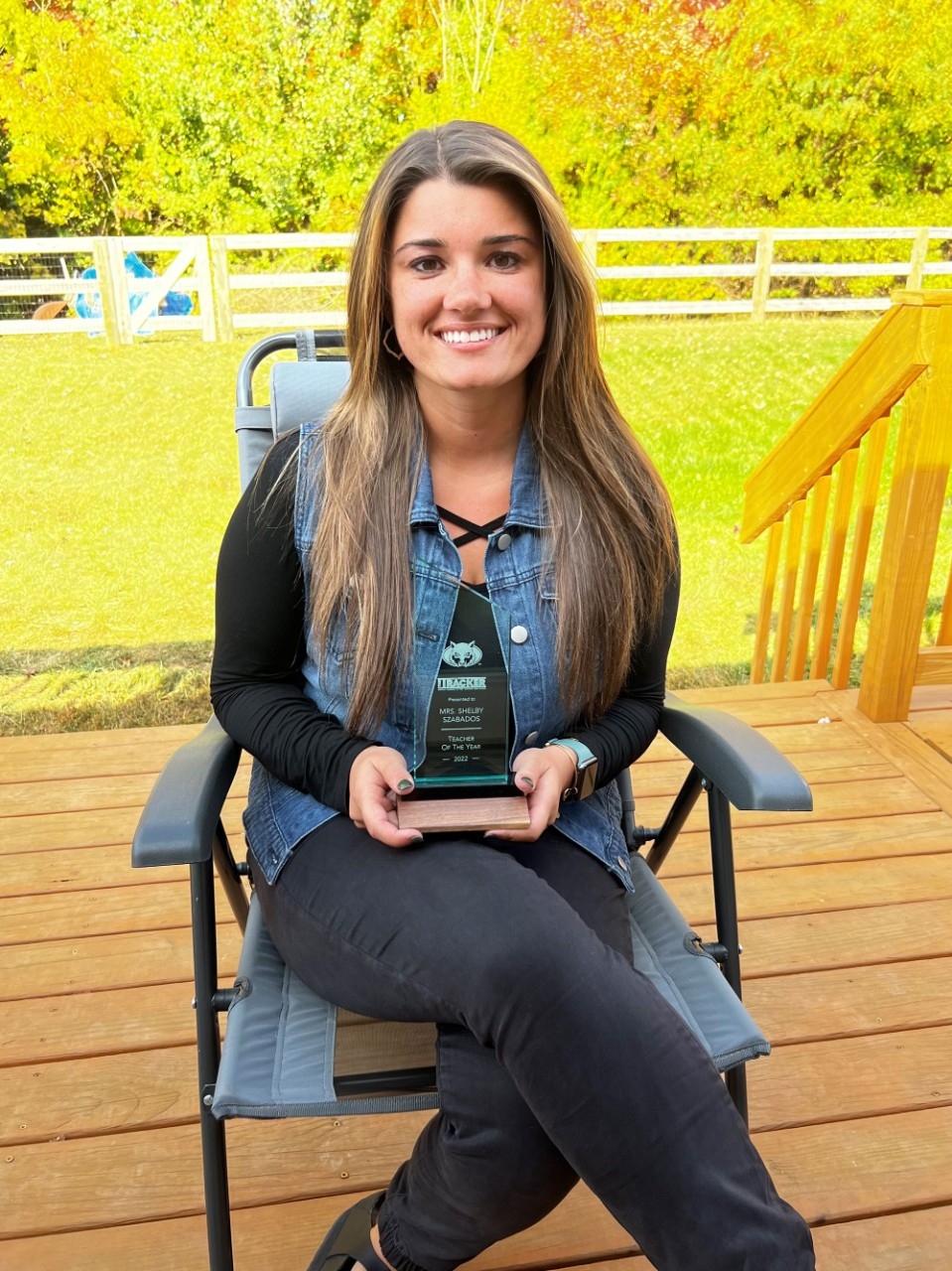
“At the end of the day, they lean and depend on us to give and teach them not only academics but love and the ways of the world."
Szabados “was drawn to secondary English education because of the outstanding teachers [she] had in the past.” Initially, Szabados appreciated that teaching involved “working with young individuals, allows for holiday breaks, and time outside of the classroom.”
As she shifted from student to teacher, she found that “breaks and holidays are necessary, and often we work through them.” Szabados pushes “[her]self to be the very best teacher [she] can be…for the students. Nothing else matters.” In her words: “I always tell my kids, ‘If I could just shut the door to room 106 and teach all day, my job would be easy,'" she says.
As a fourth-year teacher, Szabados advised future educators to “hold onto your drive, motivation, and love for students. Hold on to your excitement to learn and try new things. Education is always evolving; try a new strategy, adopt a wacky lesson plan, or add a personal touch that you know your students will appreciate," she says. "At the end of the day, they lean and depend on us to give and teach them not only academics but love and the ways of the world.”
Szabados acknowledged some of the challenges facing educators and the field: a number of new teachers leave the education field within their first five years of teaching, and we need more future educators to join the career path. Her recommendation for countering burnout is to sit and chat with a student. “Ask them about their day, how they like this year so far, their life, what their favorite class is, etc. I find that I can find my "why" and my reason for staying in this profession… when I talk, teach, and build relationships with students," she says.
Szabados’ key to success is to “build a community.” She does her best to speak with each of her 130-plus learners each day. She explains, “I make it my mission to know them, learn their learning styles and interests, and love them. When I think of the majority of my lesson plans and strategies, I think of group work and table talk. After building relationships and mutual respect within the classroom community, it can be easier to establish quick groups, jigsaw, and use 'Quiz & Teach' methods at a student level. If students know and communicate with one another, group work can be magical and extraordinarily productive.”
Building a love for reading is also important to Szabados; her students read individually at least three times per week. This makes “Book Clubs (as a reading unit), class novels, and independent novels… more fruitful and fun.”
Szabados highlighted the ways in which her time with NKU’s College of Education prepared her for her career. She believes that “practicum experiences can be eye-opening and honest regarding what to expect in the classroom [and] it is important to take those moments seriously and absorb as much as you can.”
Szabados emphasizes “collaborative work with other educators,” “the showcase of students' work” and “getting to know your students for the best classroom environment.” With this, NKU “laid the foundation for how to be the most productive and caring teacher possible.”
Szabados gave special recognition to Dr. Jon Cullick, who teaches NKU’s English Education major students as a faculty member in the Department of English. He recently earned the 2022 Frank Sinton Milburn Outstanding Professor award.
“[Dr. Cullick] excels in teaching and aiding future teachers with best practices for implementing literary work and related writing!" she shares. "He is an excellent example of an educator continuing to care and build relationships with his students.”